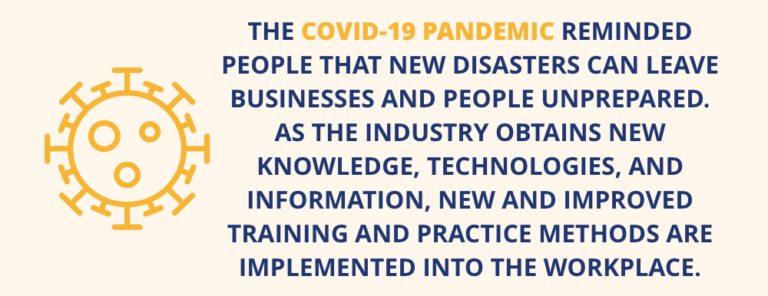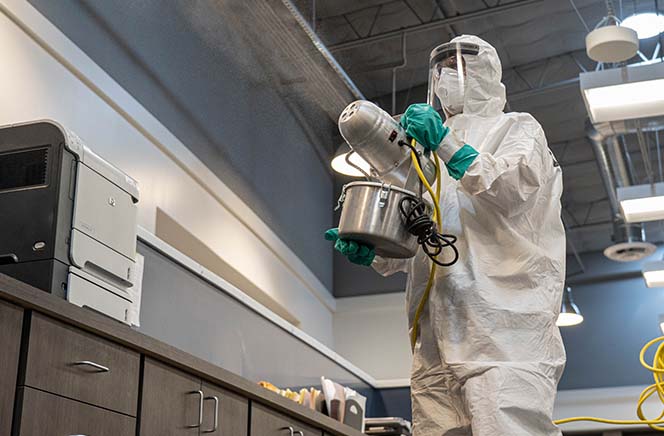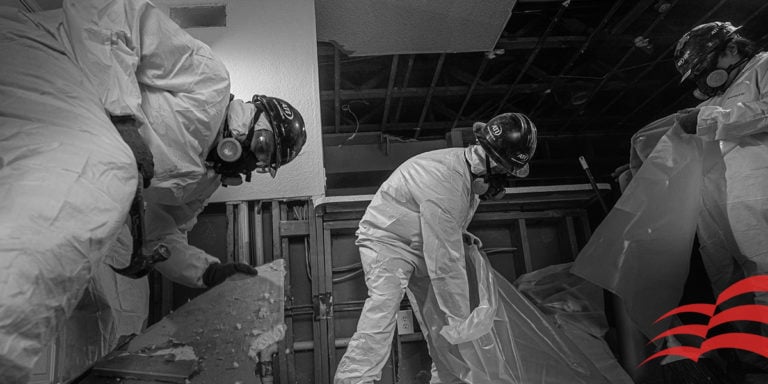
What Your Company Should Look for in a Restoration Firm
In Terms of Licensure, Certifications, and Company Experience
For restoration and disaster recovery companies, potential clients should ask about their contractor’s license and various environmental certifications as they are required by the state. The county clerk for your building’s location should have records of any properly licensed firm’s county-required certifications and can help point you in the right direction for further research. For the restoration industry, companies/individuals start with the basic level of licensing of either “general contractor” or “subcontractor.” You need a general contractor if your project requires more than one trade (e.g., a flood may require flooring, subflooring, drywall, and other trades). Most often, clients with disaster damage will seek a restoration company with their general contractor’s license. A general contractor’s license is required in many states for anyone taking the prime contract on any construction project.
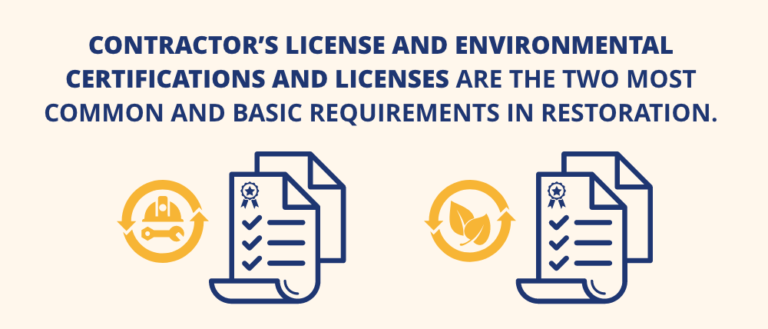
Certifications are not always required to be a restoration contractor, but the best ones have them. The most popular sources for certifications in the restoration industry are the Institute of Inspection Cleaning and Restoration Certification (IICRC) and the Restoration Industry Association (RIA). The scope and training provided by both the IICRC and RIA have made them industry leaders for certification standards; many resources on “Hiring a Restoration Crew” suggest asking the firm if they are IICRC- or RIA-certified. A certified firm must demonstrate proof of insurance, maintain a written customer complaint policy with follow-up on complaints, and provide education and training, leading to certification, for technicians.
Location is also important. While 65% of restoration companies are not franchised, the 35% with multiple locations may better serve a national building portfolio*. Some companies with one location may travel outside of their local area, depending on your building. Ask potential firms for their locations, their locations’ capabilities in servicing your building(s), whether they travel outside their local area and, if they do, how they deploy their technicians from outside of their territory.
*Source: Cleanfax
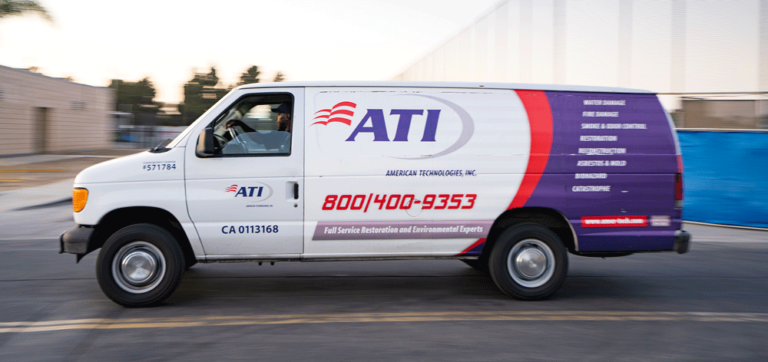
Do You Have to Have a Person Affiliated With Any Licensure?
Different states require different types of licenses to fulfill legal requirements of safety and best practices. Does the restoration firm you’ve hired have someone affiliated with all the correct licenses for your project’s needs? If a person is affiliated with a license, ask for that person’s resume to verify their experience. Some states require a person to be attached to the license, and some require the company to be attached.
What About Safety? The EMR Rating
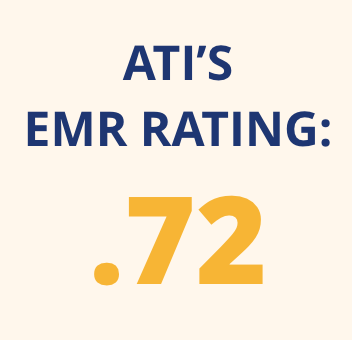
All contractors have what is known as an Experience Modification Rating (EMR) rating. With 1 being the industry average, recommended ratings should be under 1. An EMR rating is determined by a company’s safety recordables (accidents) and their general safety history.
It is updated every year to reflect any improvements or infractions from the previous year. You should ask a company for their EMR rating and select a contractor whose EMR is below 1.
How Do Restoration Firms Find and Train Talent?
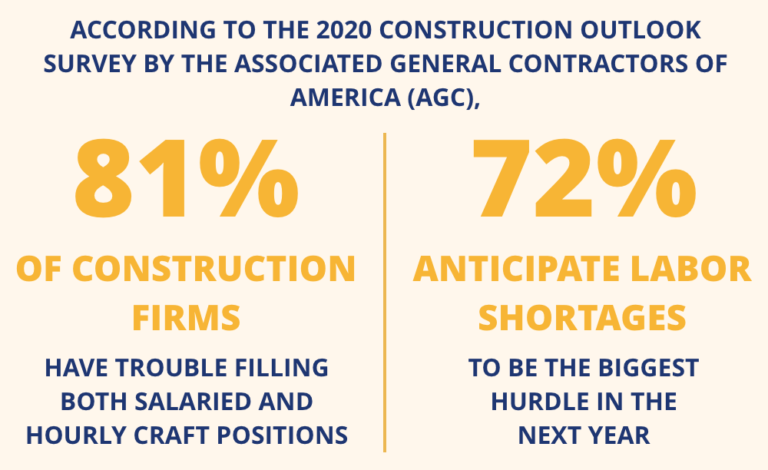
Despite a talent deficit, there are specialized resources for experienced job seekers and restoration Human Resource teams. Specialized recruiting firms are now available for restoration professionals, vetting top talent, and confirming all required certifications. They focus on connecting restorers, laborers, estimators, project managers, and other vital roles with restoration companies looking to hire. Unlike job boards, these firms screen and vet the candidates for you beforehand.
- Restoration Personnel Source is a recruiting firm that covers both the United States and Canada. Employers can search for estimators, project managers, business developers, and other related roles.
- OPS Staffing specializes in water restoration, fire restoration, disaster restoration, and insurance restoration industries.
- Questpro.com focuses on insurance and risk management staffing.
- Laborocity.com claims to use newer technologies in its vetting and hiring process, such as AI-enhanced pre-screening and machine learning outcomes.
Otherwise, popular methods of recruiting talent include university and trade school recruiting, existing internal associates looking for a new role, website job posting and general word of mouth among associates. Recent trends indicate that LinkedIn and other social media platforms are critical in capturing the interest of potential employees.
Roles Specific to Restoration Firms
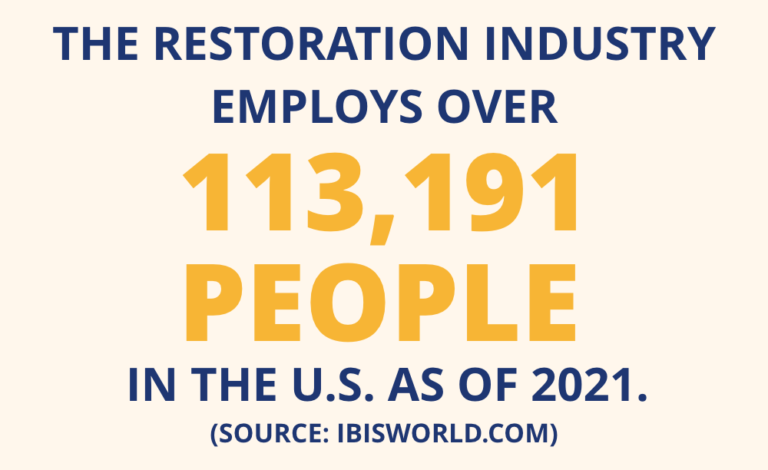
A restoration firm’s services also tend to fall into three main divisions: Restoration, Environmental and Construction. Given the nature of the restoration industry, these divisions must work together to ensure performance is by the book and project delivery is completed to the highest standards.
- Restoration: Associates within this division focus on returning properties to pre-damage condition. They remove residues or odors, repairing damage while preserving undamaged components.
- Environmental: Individuals working in the “environmental” division encompass all things Environmental, Health, and Safety (EHS). Working with restoration and construction crews, these team members help mitigate dangerous and hazardous exposures such as mold and asbestos.
- Construction: Those within the “construction” division of this industry are contractors, project directors, project managers, and tradespeople that help assess and rebuild properties. These are your plumbers, carpenters, masons, electricians, drywallers, painters, etc.
Restoration Technicians
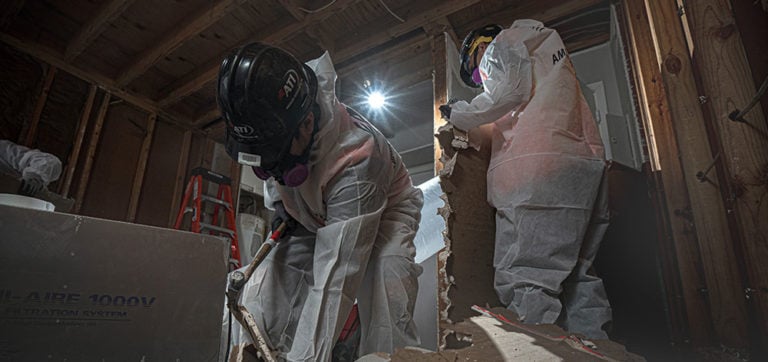
While restoration firms look for experience, there are particular and important skills one can’t acquire from training. According to Zippia, a career research organization, the top two most common skills found on a restoration technician’s resume in 2020 were “Customer Service” and “Communication.” The ability to communicate effectively with supervisors, co-workers, and customers to provide excellent customer service is in high demand. Seeking technicians with strong people skills is the first step in finding the right talent. Companies are also looking for individuals with a clean record given the exposure technicians have to people’s home and work space, with 68% of firms requiring a drug screening and 84% completing a criminal record background check (source: cleanfax.com)
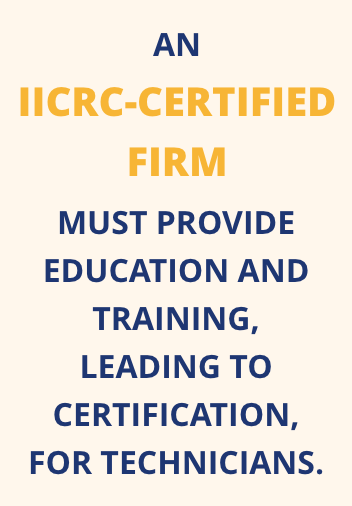
For certifications and training, the most popular education source for certifications in the restoration industry is the Institute of Inspection Cleaning and Restoration Certification (IICRC). These certifications include associate training programs.
The IICRC has evolved into a global organization with more than 60,000 active certified technicians and over 6,000 certified firms worldwide. Asking the firm if they are IICRC certified is widely recommended when hiring a firm for your project.
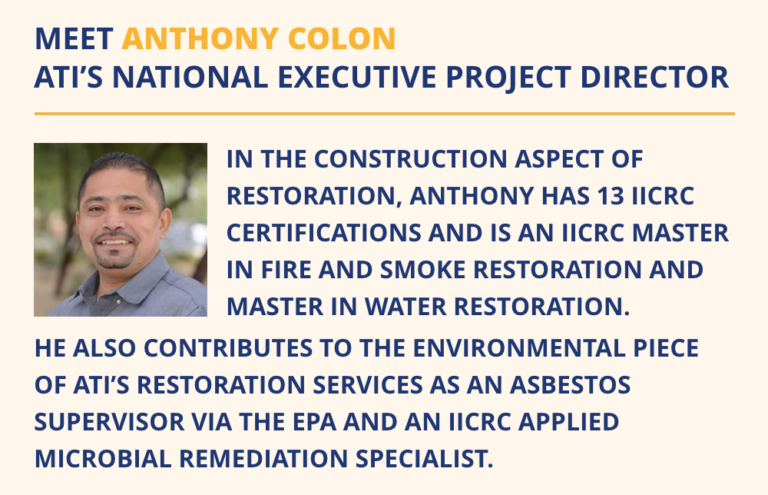
While training is only one facet of the on-boarding process for new hires, it is a crucial and continuous process for all staff throughout employment, both on- and off-site, to teach, reteach, update, and stay informed. On-site training provides hands-on, technical knowledge, including operation of technologies and heavy machinery, job-site safety, proper removal and/or installation of components during restoration and construction, and environmental, safety, and health training. Off-site training tends to focus on educational courses and the inner workings of the company: HR meetings, certification courses, CPR training, and informational lectures and seminars. Both styles of training work in tandem to round out the necessary knowledge and updates employees need. Typically, an IICRC-certified organization can conduct technical training internally if the resources are available.
